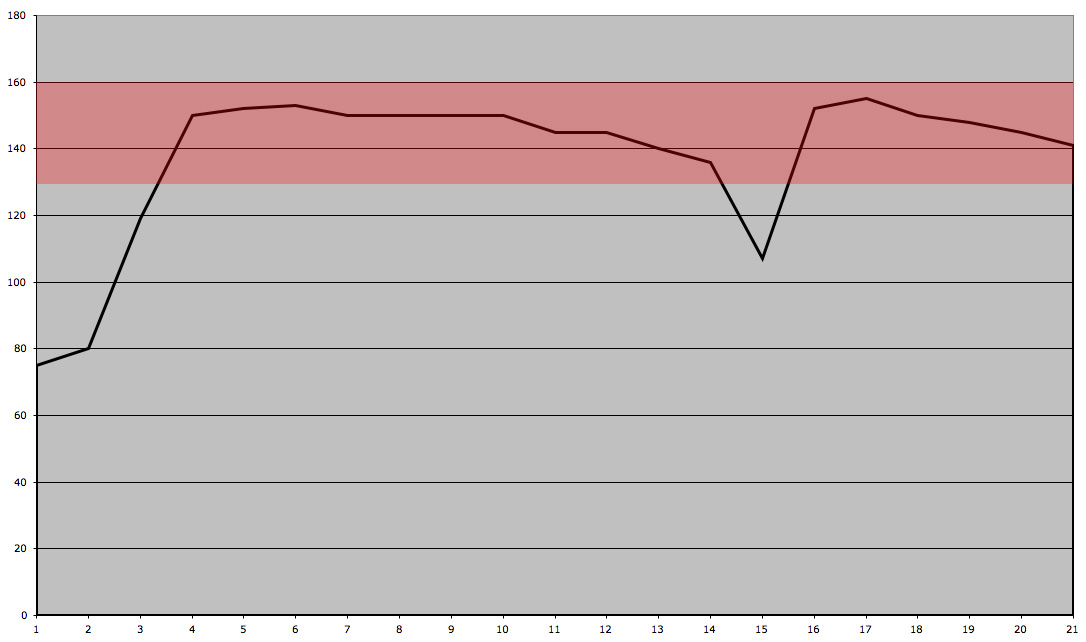A great little post from Root Simple, a blog dedicated to DIY farming at home, on how to manage the optimal compost pile. It's all to do with temperature and the post really highlights the simplicity of it. A great insight for all those into home gardening and roof farming.
Optimal temperature for a compost pile should be kept between 55 C (131 F) and 73 C (163 F) the red bands above. When the temperature dips below this, it should be turned over. Furthermore, from the post,
- You can make sure that the pile does not get too hot. Above 71 C (160° F) you start to kill off the thermophilic bacteria that decompose your pile. To decrease temperature you turn and add more carbon material and water.
- Washington State University recommends subjecting all of the pile to temperatures above 65 C (150° F) to kill potential pathogens. I’m fairly certain that, with the turn I did at day 14, all of the pile got up to 65C (150°F).
- Weed seeds are killed above 55 C (130°F)–another reason to watch temperature.
- Failing to get high temperatures can be an indication of too much carbon or a lack of water. To correct, add more nitrogen and water and turn.
- A loss of temperature could indicate that the pile is going anaerobic. The solution is to add more carbon material and turn.







